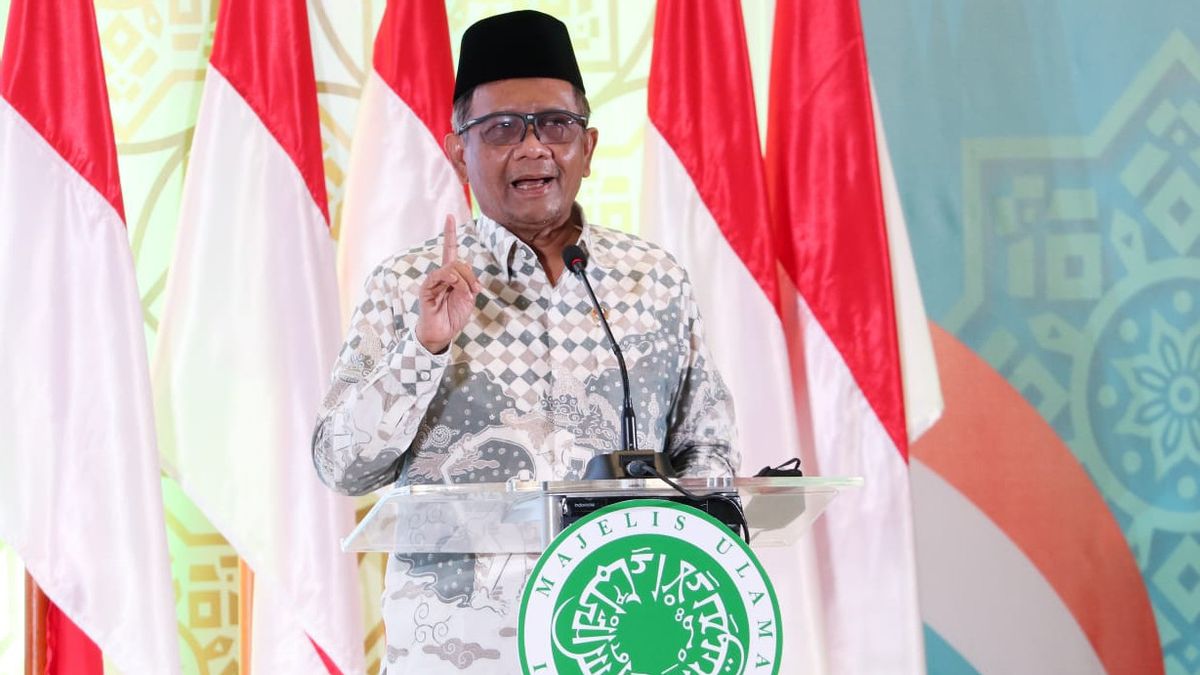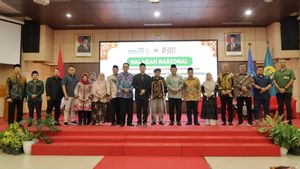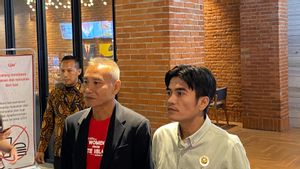JAKARTA - Coordinating Minister for Political, Legal and Security Affairs (Menko Polhukam) Mahfud MD, said Indonesia as a Pancasila state does not make laws in certain religions as rules. However, he ensures that all people in the country can carry out their religious activities according to their respective teachings.
This was conveyed by Mahfud when speaking at the Ijtima Ulama MUI event which was held at the Sultan Hotel, Jakarta on Tuesday, November 9 yesterday.
"In this Pancasila state, the state does not officially enforce religious law, but the state protects all citizens who want to practice their respective religious teachings," Mahfud said in a written statement quoted Wednesday, November 10.
He emphasized that Indonesia is also not a religious country that can enforce certain laws. "But Indonesia is also not a secular country, so religions that become citizens' awareness of life and beliefs must be protected and guide the management of religion," said the former Chief Justice of the Constitutional Court (MK).
Mahfud then gave an example of this as seen from the application of sharia as a way or teaching carried out by Muslims. For the field of private law such as aqidah, morality, muammalah, ritual worship and social worship can be carried out or lived by Muslims without having to be enforced through law by the state. As for public law matters such as constitutional law, election law, regional autonomy law, and Criminal law applies the same rules to all citizens of any religion. "All are obliged to submit and are forced to submit to the same law in the field of public law," said Mahfud.
Even so, he confirmed that there was indeed an Islamic civil law that was made into law, but not to punish but to protect those who wanted to implement it. One of the legal products he calls is the Zakat Law and the Halal Product Law.
"Indeed, there are Islamic civil laws that are made into law but not to enforce the law but to protect those who want to implement it. For example, the existence of the Zakat Law and the Law on Halal Products is not to oblige Muslims to pay zakat or to prohibit Muslims from eating what is haram," he explained.
"But in public law, such as party law and elections, Muslims are also subject to the same laws that apply to other communities. Public law is made by the state as a sentenceun sawa' or meeting point of various groups of people," he concluded.
The English, Chinese, Japanese, Arabic, and French versions are automatically generated by the AI. So there may still be inaccuracies in translating, please always see Indonesian as our main language. (system supported by DigitalSiber.id)










